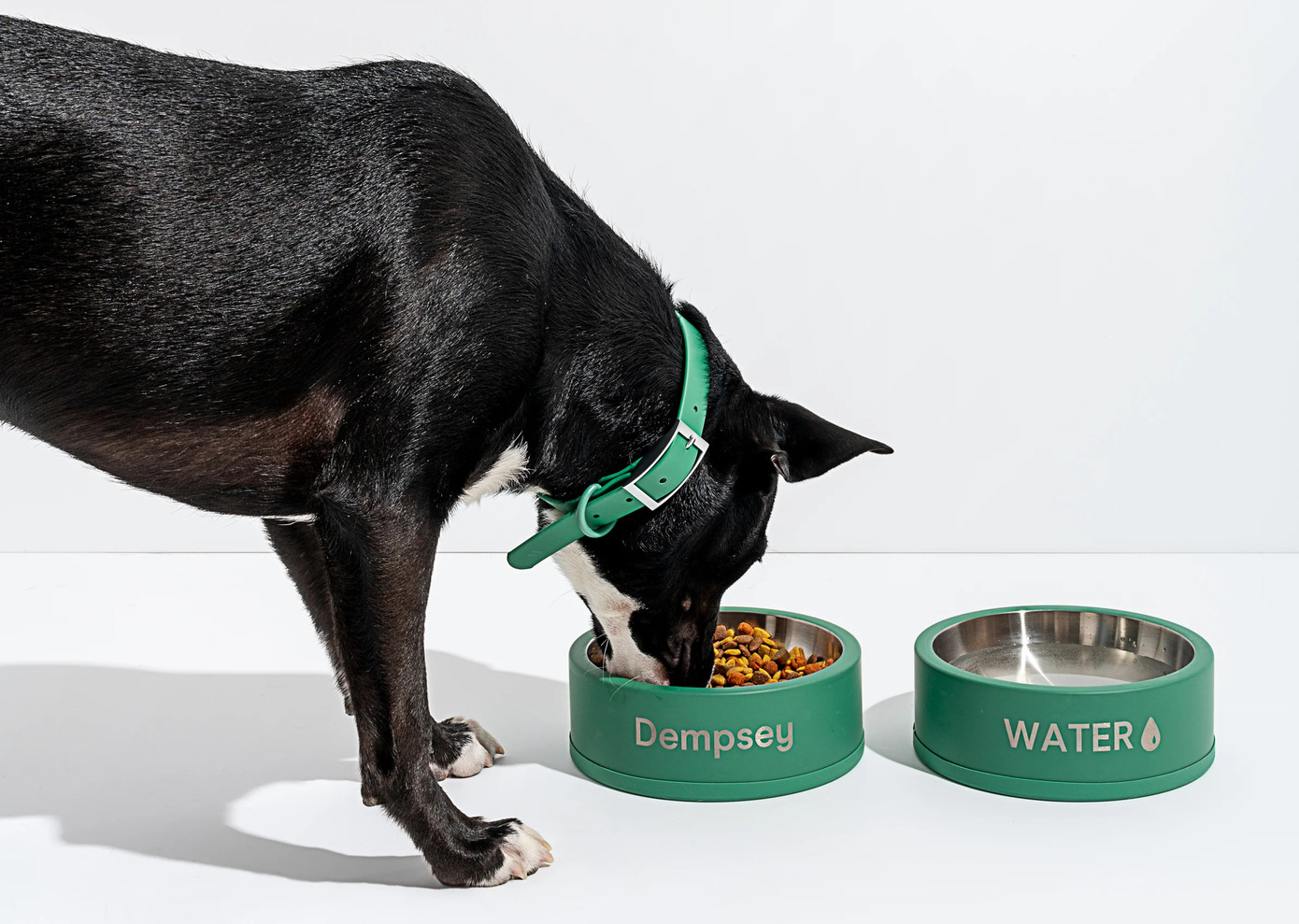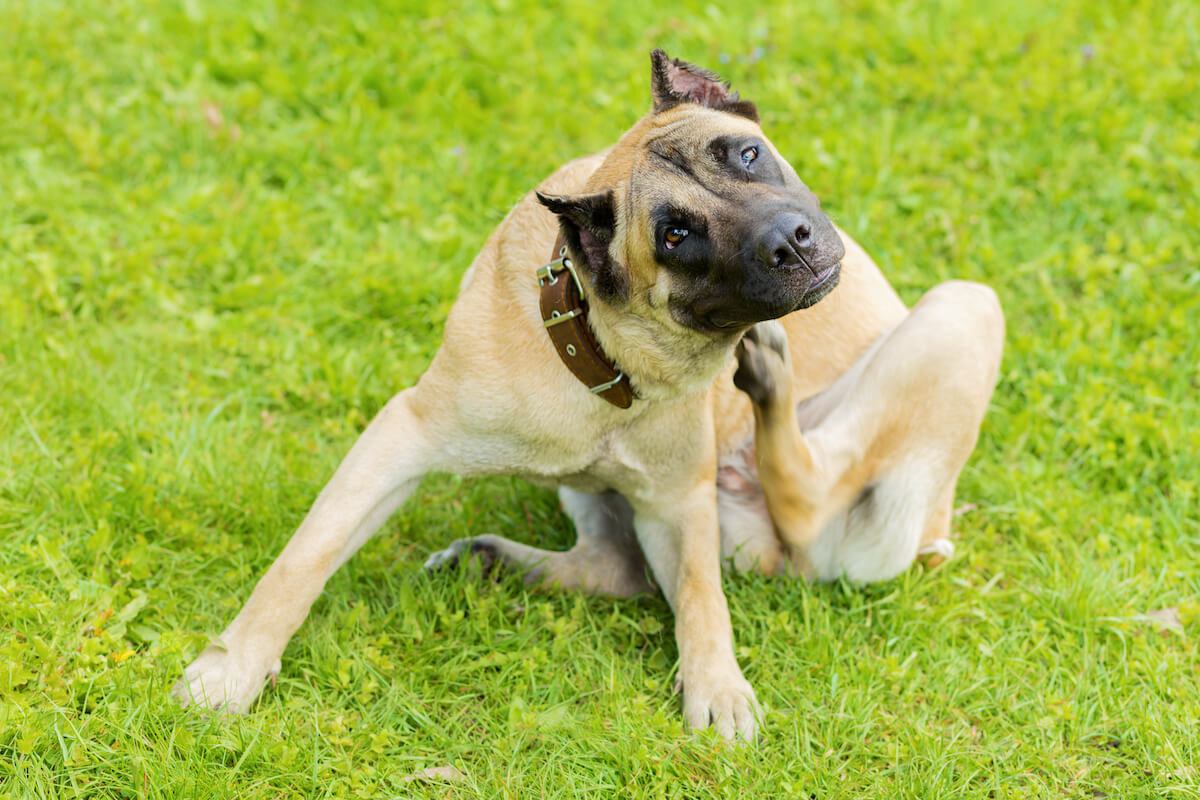Home>Health & Wellness>Common Health Issues>Dog With Allergies – What Shampoo Would Help


Common Health Issues
Dog With Allergies – What Shampoo Would Help
Published: January 26, 2024
Discover the best shampoo for dogs with allergies and other common health issues. Find effective solutions to keep your pet healthy and happy.
(Many of the links in this article redirect to a specific reviewed product. Your purchase of these products through affiliate links helps to generate commission for Pawsomeoldies.com, at no extra cost. Learn more)
Table of Contents
Introduction
Dealing with a dog's allergies can be a challenging and distressing experience for both the pet and its owner. Allergies in dogs are more common than one might think, and they can manifest in various ways, including skin irritation, itching, and discomfort. One crucial aspect of managing a dog's allergies is selecting the right shampoo to alleviate their symptoms and improve their overall well-being.
Understanding the specific needs of a dog with allergies is essential for providing effective care and relief. By gaining insight into the common allergens that affect dogs and the key ingredients to look for or avoid in shampoos, pet owners can make informed decisions to support their furry companions' health.
In this article, we will delve into the world of dog allergies, exploring the common triggers and the significance of using the appropriate shampoo to address allergic reactions. Additionally, we will highlight the essential ingredients to seek out and those to steer clear of when choosing a shampoo for allergic dogs. Furthermore, we will provide recommendations for top-quality shampoos that have proven effective in soothing allergic symptoms in dogs.
By the end of this article, readers will have a comprehensive understanding of how to best care for their allergic dogs, empowering them to make well-informed choices when selecting the most suitable shampoo to promote their pet's comfort and relief.
Read more: My Dog Has Cancer: What CBD Oil Would Help
Understanding Dog Allergies
Dog allergies are a common health concern that can significantly impact a pet's quality of life. Similar to humans, dogs can develop allergic reactions to various substances, leading to discomfort and distress. Allergies in dogs typically manifest in two primary forms: environmental and food-related. Environmental allergies, also known as atopic dermatitis, are often triggered by airborne allergens such as pollen, mold, and dust mites. On the other hand, food allergies arise from a dog's adverse reaction to specific ingredients in their diet, such as proteins or grains.
The most prevalent symptom of dog allergies is skin irritation, which can manifest as itching, redness, rashes, and hot spots. Dogs may also exhibit signs of discomfort, including excessive scratching, licking, and chewing of their skin. Additionally, allergic reactions can lead to ear infections, hair loss, and overall skin inflammation. It is essential for pet owners to recognize these symptoms and seek appropriate care to alleviate their dog's discomfort.
Diagnosing dog allergies often involves a comprehensive evaluation by a veterinarian, including skin tests and elimination diets to identify the specific allergens affecting the dog. Once the allergens are identified, pet owners can take proactive measures to minimize their dog's exposure to these triggers and provide targeted treatment to manage allergic symptoms effectively.
Understanding the nature of dog allergies is crucial for pet owners to empathize with their furry companions and take the necessary steps to address their discomfort. By recognizing the signs of allergic reactions and seeking professional guidance, pet owners can play a pivotal role in enhancing their dog's well-being and overall happiness.
Common Allergens for Dogs
Understanding the common allergens that affect dogs is essential for identifying potential triggers and taking proactive measures to minimize their impact. Dogs can develop allergic reactions to a wide range of substances, and being aware of these common allergens can help pet owners create a safer and more comfortable environment for their furry companions.
-
Pollen: Just like humans, dogs can be sensitive to pollen from grasses, trees, and weeds. During certain seasons, pollen levels can significantly increase, leading to allergic reactions in susceptible dogs. Symptoms may include itching, sneezing, and watery eyes.
-
Dust Mites: These microscopic creatures are a prevalent allergen for dogs, particularly in indoor environments. Dust mites thrive in bedding, carpets, and upholstery, posing a constant threat to dogs with sensitivities. Allergic reactions to dust mites can manifest as skin irritation and respiratory issues.
-
Mold: Mold spores present in damp or humid environments can trigger allergic reactions in dogs. Whether indoors or outdoors, exposure to mold can lead to skin rashes, itching, and respiratory distress in allergic dogs.
-
Dander: While dogs are commonly associated with causing allergies in humans, they can also be allergic to dander from other animals. This can be a concern in multi-pet households, where exposure to dander from cats or other dogs may provoke allergic symptoms in sensitive dogs.
-
Certain Foods: Food allergies are another common concern for dogs, with proteins such as beef, chicken, and dairy often being implicated. Grains, including wheat and corn, can also trigger allergic reactions in some dogs. Food allergies can lead to skin issues, digestive problems, and overall discomfort.
-
Insect Bites: Dogs can develop allergic reactions to insect bites, particularly those from fleas, ticks, and mosquitoes. These reactions can cause intense itching, skin inflammation, and in severe cases, systemic reactions that require immediate veterinary attention.
By recognizing these common allergens, pet owners can take proactive steps to minimize their dog's exposure and provide targeted care to alleviate allergic symptoms. Creating an allergen-free living environment, implementing regular grooming practices, and seeking veterinary guidance for allergy management are essential strategies for supporting dogs with sensitivities.
Importance of Using the Right Shampoo for Allergic Dogs
Selecting the right shampoo for allergic dogs is of paramount importance in managing their allergic symptoms and promoting skin health. Dogs with allergies often experience skin irritation, itching, and discomfort, which can significantly impact their overall well-being. Using a specially formulated shampoo designed to soothe allergic reactions and maintain skin health is crucial for providing relief and improving the quality of life for allergic dogs.
The skin of allergic dogs is particularly sensitive and prone to inflammation, making it essential to choose a shampoo that is gentle, hypoallergenic, and free from harsh chemicals. The right shampoo can help alleviate itching, reduce redness, and nourish the skin, providing much-needed relief for dogs experiencing allergic reactions. Additionally, a suitable shampoo can help maintain the skin's natural moisture balance, preventing dryness and further irritation.
Furthermore, using the appropriate shampoo for allergic dogs can aid in minimizing the presence of allergens on the skin and coat. Regular bathing with a hypoallergenic shampoo can help remove environmental allergens, pollen, dust, and other irritants that may exacerbate allergic symptoms in dogs. By cleansing the skin effectively, the right shampoo can contribute to reducing the overall allergen load on the dog's body, thereby mitigating the risk of allergic reactions.
In addition to alleviating allergic symptoms, the right shampoo can also support the overall health and appearance of a dog's coat. Many shampoos formulated for allergic dogs contain nourishing ingredients such as oatmeal, aloe vera, and natural oils, which can help soothe the skin, reduce inflammation, and promote a healthy, lustrous coat. By choosing a shampoo with these beneficial properties, pet owners can address allergic symptoms while enhancing their dog's skin and coat health.
Ultimately, the importance of using the right shampoo for allergic dogs lies in its ability to provide targeted relief, minimize allergen exposure, and support skin and coat health. By incorporating a high-quality, hypoallergenic shampoo into the regular grooming routine, pet owners can play a proactive role in managing their dog's allergies and ensuring their comfort and well-being.
Ingredients to Look for in Shampoo for Allergic Dogs
When selecting a shampoo for allergic dogs, it is essential to prioritize products that contain gentle yet effective ingredients to soothe sensitive skin and alleviate allergic symptoms. The following key ingredients are known for their beneficial properties in addressing allergic reactions and promoting skin health in dogs:
-
Oatmeal: Oatmeal is a widely recognized ingredient in shampoos for allergic dogs due to its soothing and moisturizing properties. It helps relieve itching, reduce inflammation, and restore the skin's natural moisture barrier. Oatmeal-based shampoos are gentle and can provide much-needed relief for dogs experiencing allergic reactions.
-
Aloe Vera: Aloe vera is renowned for its healing and anti-inflammatory properties, making it an excellent ingredient for allergic dog shampoos. It can help calm irritated skin, reduce redness, and promote overall skin health. Aloe vera's natural cooling effect can also provide immediate relief for dogs with allergic skin conditions.
-
Hypoallergenic Formulas: Look for shampoos specifically labeled as hypoallergenic, as they are formulated to minimize the risk of allergic reactions. These formulas are free from common irritants and harsh chemicals, making them suitable for dogs with sensitive skin and allergies. Hypoallergenic shampoos are designed to cleanse gently without causing further irritation.
-
Natural Oils: Shampoos containing natural oils such as coconut oil, jojoba oil, or olive oil can offer multiple benefits for allergic dogs. These oils help moisturize the skin, reduce itching, and support a healthy coat. Additionally, natural oils provide nourishment and protection for the skin, contributing to its overall well-being.
-
Vitamins and Antioxidants: Shampoos enriched with vitamins and antioxidants, such as vitamin E and green tea extract, can help fortify the skin and provide additional support against allergic reactions. These ingredients contribute to skin repair, protection from environmental stressors, and overall skin resilience.
-
Gentle Cleansers: Opt for shampoos that contain mild, gentle cleansers to effectively remove allergens and impurities without stripping the skin of its natural oils. Ingredients such as coconut-based cleansers or plant-derived surfactants can provide thorough cleansing while being gentle on allergic skin.
By seeking out shampoos that incorporate these beneficial ingredients, pet owners can make informed choices to address their allergic dog's specific needs. These ingredients work synergistically to provide relief, nourishment, and support for allergic dogs, contributing to their overall comfort and well-being.
Ingredients to Avoid in Shampoo for Allergic Dogs
When selecting a shampoo for allergic dogs, it is equally important to be mindful of the ingredients that may exacerbate allergic reactions or cause further skin irritation. Certain components commonly found in shampoos can be harsh, allergenic, or potentially harmful to sensitive skin, making it crucial for pet owners to steer clear of these ingredients when choosing products for their allergic dogs.
-
Artificial Fragrances and Dyes: Shampoos containing artificial fragrances and dyes can be problematic for allergic dogs. These synthetic additives are known to cause skin irritation and allergic reactions in sensitive individuals. Opting for fragrance-free and dye-free shampoos can help minimize the risk of triggering allergic symptoms in dogs with sensitivities.
-
Parabens: Parabens are preservatives commonly used in cosmetic products, including shampoos. However, they have been associated with skin irritation and allergic dermatitis in some individuals. Pet owners should avoid shampoos that contain parabens to reduce the potential for adverse skin reactions in their allergic dogs.
-
Sulfates: Sulfates, such as sodium lauryl sulfate (SLS) and sodium laureth sulfate (SLES), are foaming agents often found in shampoos. While they create lather and aid in cleansing, sulfates can be drying and irritating to the skin, particularly for dogs with allergies. Choosing sulfate-free shampoos can help maintain the skin's natural moisture balance and minimize the risk of exacerbating allergic symptoms.
-
Phthalates: Phthalates are a group of chemicals used to enhance the texture and scent of cosmetic products. However, they have been linked to skin irritation and allergic reactions. Pet owners should opt for shampoos that are free from phthalates to reduce the potential for skin discomfort in allergic dogs.
-
Formaldehyde and Formaldehyde Releasers: These preservatives, which are used to prevent bacterial growth in shampoos, can be harsh and sensitizing to the skin. Formaldehyde and formaldehyde releasers have the potential to trigger allergic contact dermatitis in dogs with sensitivities. Choosing shampoos that are free from these preservatives can help minimize the risk of allergic skin reactions.
By being mindful of these ingredients and actively seeking shampoos that are free from these potential irritants, pet owners can make informed choices to support their allergic dogs' skin health and overall well-being. Prioritizing gentle, hypoallergenic formulations that avoid these problematic ingredients can contribute to alleviating allergic symptoms and promoting a comfortable grooming experience for dogs with sensitivities.
Recommended Shampoos for Dogs with Allergies
When it comes to choosing the right shampoo for dogs with allergies, pet owners are presented with a variety of options specifically formulated to address allergic skin conditions and provide relief for their furry companions. These recommended shampoos have garnered praise for their gentle, hypoallergenic formulations and their ability to soothe allergic symptoms while promoting skin health. Here are some top picks for shampoos designed to cater to the needs of allergic dogs:
-
Veterinary Formula Clinical Care Oatmeal and Tea Tree Oil Shampoo: This veterinarian-recommended shampoo is formulated with natural ingredients, including colloidal oatmeal and tea tree oil, known for their soothing and antifungal properties. It effectively calms irritated skin, reduces itching, and helps manage allergic dermatitis in dogs.
-
Earthbath Oatmeal and Aloe Pet Shampoo: Renowned for its gentle, soap-free formula, this shampoo contains oatmeal, aloe vera, and organic shea butter to nourish and moisturize the skin. It is ideal for dogs with sensitive skin and allergies, providing relief from itching and promoting a healthy coat.
-
Burt's Bees for Dogs Natural Oatmeal Shampoo: Formulated with colloidal oat flour and honey, this natural shampoo is designed to soothe and soften the skin while maintaining a balanced pH level. It is free from harsh chemicals and artificial fragrances, making it suitable for dogs with allergic reactions and sensitivities.
-
Allermyl Shampoo for Dogs: Recommended by veterinarians, this hypoallergenic shampoo contains skin-soothing ingredients such as glycotechnology, which helps manage allergic skin conditions and restore the skin barrier. It is particularly beneficial for dogs with atopic dermatitis and other allergic skin disorders.
-
Vet's Best Hypo-Allergenic Dog Shampoo: This gentle, soap-free shampoo is formulated with aloe vera and vitamin E to cleanse and moisturize the skin without causing further irritation. It is specifically designed for dogs with sensitive skin and allergies, providing a calming and nourishing bathing experience.
-
Pro Pet Works Oatmeal Pet Wash Shampoo + Conditioner: This all-natural, soap-free shampoo and conditioner combo is enriched with oatmeal, aloe vera, and almond oil to soothe dry, itchy skin and promote a soft, healthy coat. It is suitable for dogs with allergies, hot spots, and other skin irritations.
These recommended shampoos have received acclaim from pet owners and professionals alike for their efficacy in addressing allergic symptoms and supporting skin health in dogs. By incorporating these specially formulated shampoos into their grooming routine, pet owners can provide targeted care for their allergic dogs, offering relief from itching, redness, and discomfort while nurturing their skin and coat.
Conclusion
In conclusion, caring for a dog with allergies requires a thoughtful and proactive approach, encompassing an understanding of common allergens, the significance of using the right shampoo, and the essential ingredients to seek out or avoid in allergy-specific grooming products. By recognizing the diverse triggers that can provoke allergic reactions in dogs, pet owners can take steps to minimize their pets' exposure to these allergens, thereby reducing the likelihood of discomfort and skin irritation.
The importance of using the right shampoo for allergic dogs cannot be overstated. A specially formulated shampoo designed to soothe allergic symptoms and maintain skin health plays a pivotal role in providing relief and improving the overall well-being of allergic dogs. By selecting shampoos with gentle, hypoallergenic formulations and beneficial ingredients such as oatmeal, aloe vera, and natural oils, pet owners can effectively address their dogs' allergic reactions while promoting skin comfort and resilience.
Furthermore, the careful consideration of ingredients to look for and those to avoid in shampoos for allergic dogs empowers pet owners to make informed choices that prioritize their pets' skin health and overall comfort. By seeking out shampoos free from potential irritants such as artificial fragrances, dyes, parabens, and sulfates, pet owners can create a grooming routine that supports their allergic dogs' specific needs, minimizing the risk of exacerbating allergic symptoms.
The recommended shampoos for dogs with allergies provide a valuable resource for pet owners seeking effective solutions to alleviate allergic reactions and nurture their pets' skin and coat. These top picks have been lauded for their gentle, soothing formulations and their ability to provide relief from itching, redness, and discomfort, catering to the unique requirements of allergic dogs.
In essence, by integrating the knowledge and insights shared in this article, pet owners can play an active role in managing their dogs' allergies, fostering a comfortable and supportive environment that prioritizes their pets' skin health and overall well-being. Through informed decision-making and the use of appropriate grooming products, pet owners can enhance the quality of life for their allergic dogs, ensuring they receive the care and relief they deserve.














